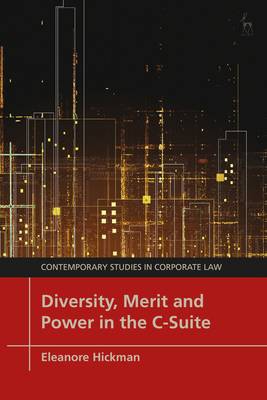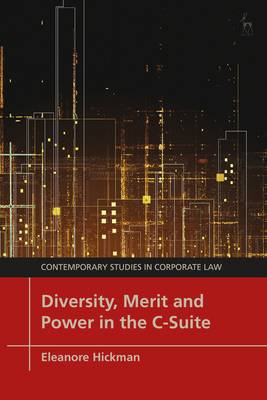
- Afhalen na 1 uur in een winkel met voorraad
- Gratis thuislevering in België vanaf € 30
- Ruim aanbod met 7 miljoen producten
- Afhalen na 1 uur in een winkel met voorraad
- Gratis thuislevering in België vanaf € 30
- Ruim aanbod met 7 miljoen producten
Zoeken
Omschrijving
This book explores the correlations of diversity and power in UK boardrooms and the difficulties inherent in truly merit-based appointments. From a distance, boardroom diversity is seen as a UK success story of recent years. A closer look at boardrooms reveals a more uncomfortable truth: boards can be split into tracks of power and diversity. Where there is a concentration in power, genuine diversity is much less prevalent.
Using the FTSE 100, the book examines the appointment and retention of the most powerful positions in some of the world's most powerful corporations. Diversity, merit and power are each defined and measured individually, then considered cumulatively, to provide fresh insights into the meaning of corporate power, who wields it and how it is obtained. This analysis is considered alongside the diversity narratives created by the FTSE 100 to frame their position on diversity. From this, the value of corporate 'diversity speak' is challenged, together with the regulatory requirements that result in its production. Those studying or practising corporate law or management and anyone with an interest in corporate power will find this in-depth assessment thought-provoking and informative. From the book's original vantage point, suggestions are made as to how and why we might seek a more balanced distribution of power in the boardroom.Specificaties
Betrokkenen
- Auteur(s):
- Uitgeverij:
Inhoud
- Aantal bladzijden:
- 248
- Taal:
- Engels
- Reeks:
Eigenschappen
- Productcode (EAN):
- 9781509946563
- Verschijningsdatum:
- 18/05/2023
- Uitvoering:
- Hardcover
- Formaat:
- Genaaid
- Afmetingen:
- 156 mm x 234 mm
- Gewicht:
- 526 g

Alleen bij Standaard Boekhandel
+ 407 punten op je klantenkaart van Standaard Boekhandel
Beoordelingen
We publiceren alleen reviews die voldoen aan de voorwaarden voor reviews. Bekijk onze voorwaarden voor reviews.








